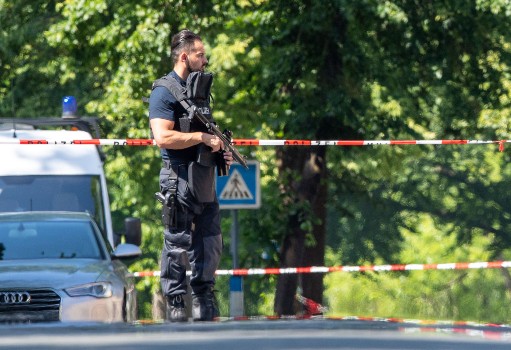Police said they were informed shots had been fired in Espelkamp, in Germany’s most populous state North Rhine-Westphalia, on Thursday morning.
They found a 48-year-old man dead at the scene and a woman also died from severe injuries despite attempts to resuscitate her.
A 52-year-old man from the nearby town of Diepenau was arrested in the afternoon but the motive remains unclear, police said.
Gun laws were tightened in Germany after two school massacres in the eastern city of Erfurt in April 2002 and in the southwestern town of Winnenden in March 2009, both of which were also carried out with legal weapons.
The country, which has some of the strictest gun laws in Europe, now requires anyone younger than 25 to pass a psychiatric exam before applying for a gun licence.
Nine people were killed when gunman David Ali Sonboly went on a rampage in a shopping centre in Munich in 2016.
At least 35 people were also wounded during the attack, which began at a McDonald’s franchise and ended with the gunman turning his 9mm Glock pistol on himself.
The Munich assault sparked a debate about whether Germany’s strict gun laws should be tightened further.



 Please whitelist us to continue reading.
Please whitelist us to continue reading.
Is it already clear if this happened through a legally detained weapon or not ?
You stated circumstances are not clear. It seems too early to speculate on guns law, that is already one of the strictest in Europe.
And, in case of people killing others by cars/trucks, are you suggesting driving license should be harder to get ?
David Ali Sonboly didn’t got the gun legally. To restrict guns law have impact only on loyal people. It is just a political move, useless.